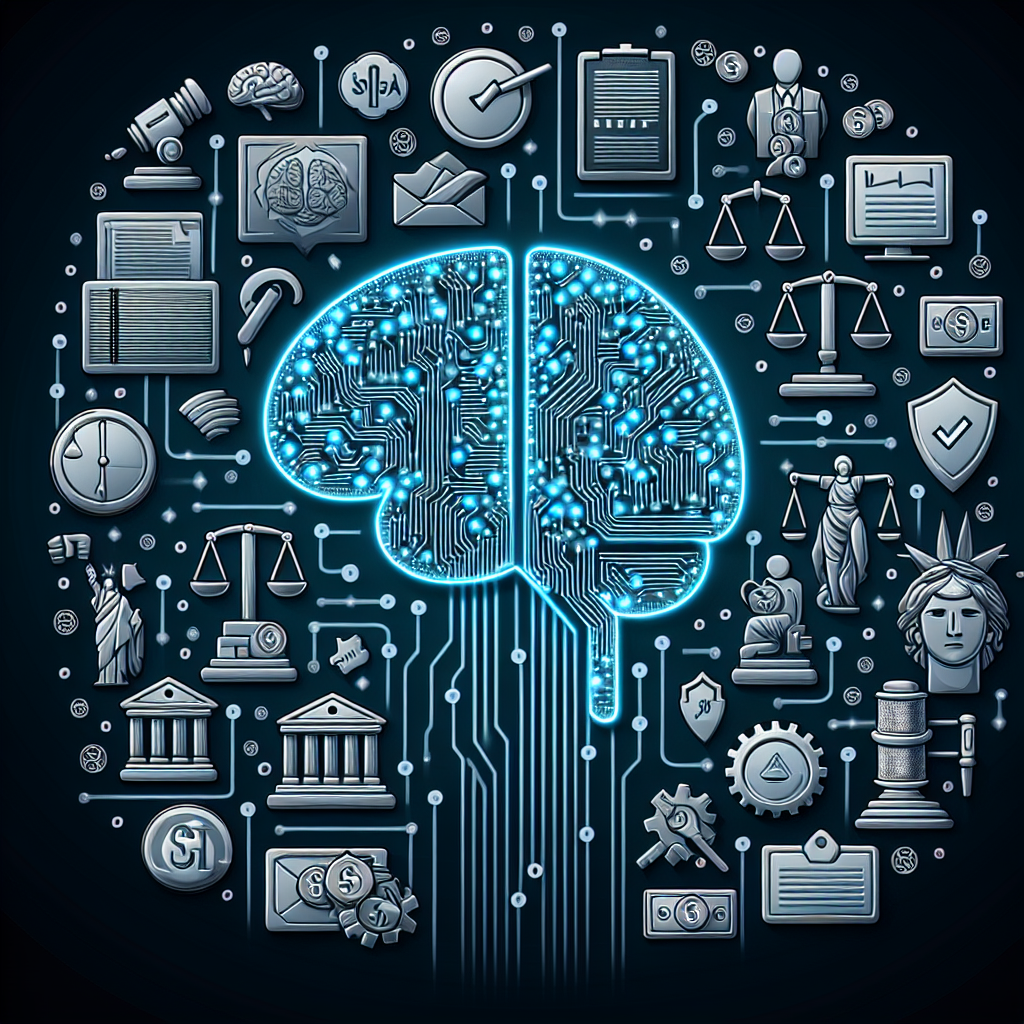Governments around the world are increasingly turning to artificial intelligence (AI) to help make better decisions and improve efficiency in the delivery of public services. AI has the potential to revolutionize government decision-making processes by providing data-driven insights and predictions that can inform policy-making, resource allocation, and service delivery. However, the use of AI in government decision-making also raises a number of ethical, legal, and practical challenges that need to be addressed.
The Impact of AI on Government Decision Making
1. Improved Efficiency: AI can help governments streamline decision-making processes by analyzing large volumes of data quickly and accurately. This can lead to more informed and timely decisions, as well as reduced administrative costs.
2. Data-Driven Insights: AI can analyze vast amounts of data to uncover patterns, trends, and correlations that may not be apparent to human decision-makers. This can help governments make more evidence-based decisions and predict future outcomes more accurately.
3. Enhanced Policy-Making: AI can provide policymakers with real-time insights into the impact of their policies, allowing them to adjust and refine their approaches based on actual outcomes. This can lead to more effective and responsive governance.
4. Improved Service Delivery: AI can help governments deliver services more efficiently and effectively by automating routine tasks, optimizing resource allocation, and personalizing services based on individual needs. This can lead to better outcomes for citizens and improved satisfaction with government services.
5. Risk Mitigation: AI can help governments identify and mitigate risks more effectively by analyzing data to detect patterns of fraud, corruption, or other malfeasance. This can help governments safeguard public resources and maintain public trust.
Challenges of AI in Government Decision Making
1. Bias and Fairness: AI algorithms can perpetuate or even amplify biases present in the data used to train them. This can result in discriminatory outcomes, particularly in sensitive areas such as law enforcement, hiring, and social services. Governments must take steps to ensure that AI systems are fair and unbiased in their decision-making processes.
2. Transparency and Accountability: AI algorithms can be complex and opaque, making it difficult to understand how decisions are reached. This can raise concerns about accountability and the ability to challenge or appeal automated decisions. Governments must ensure that AI systems are transparent and accountable to the public.
3. Privacy and Data Security: AI systems rely on vast amounts of data to make decisions, raising concerns about the privacy and security of sensitive information. Governments must implement robust data protection measures to safeguard citizen data and ensure compliance with privacy regulations.
4. Skills and Capacity: Implementing AI in government decision-making requires specialized skills and expertise that may be lacking in many government agencies. Governments must invest in training and capacity-building to ensure that staff have the knowledge and skills needed to effectively deploy and manage AI systems.
5. Ethical Considerations: AI raises a host of ethical issues, including questions about the use of personal data, the impact on jobs and labor markets, and the potential for autonomous decision-making by AI systems. Governments must engage with stakeholders to address these ethical considerations and ensure that AI is deployed in a responsible and ethical manner.
FAQs
Q: How can AI improve government decision-making processes?
A: AI can improve government decision-making processes by providing data-driven insights, automating routine tasks, optimizing resource allocation, and predicting future outcomes more accurately.
Q: What are some of the challenges of using AI in government decision-making?
A: Challenges of using AI in government decision-making include bias and fairness, transparency and accountability, privacy and data security, skills and capacity, and ethical considerations.
Q: How can governments address the ethical considerations of using AI in decision-making?
A: Governments can address the ethical considerations of using AI in decision-making by engaging with stakeholders, implementing robust data protection measures, ensuring transparency and accountability, and promoting responsible and ethical deployment of AI systems.
In conclusion, the impact of AI on government decision-making is significant and far-reaching. While AI has the potential to improve efficiency, effectiveness, and responsiveness in government decision-making processes, it also raises a number of challenges that must be addressed. By proactively addressing issues such as bias, transparency, privacy, skills, and ethics, governments can harness the power of AI to make better decisions, deliver better services, and build public trust in the digital age.

